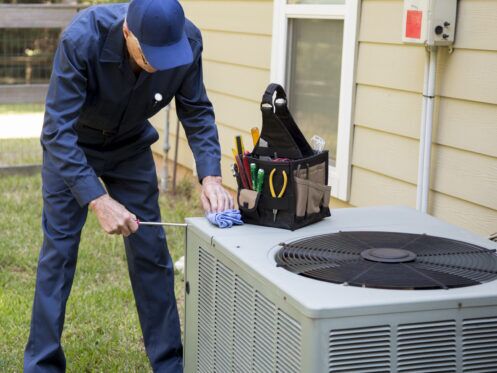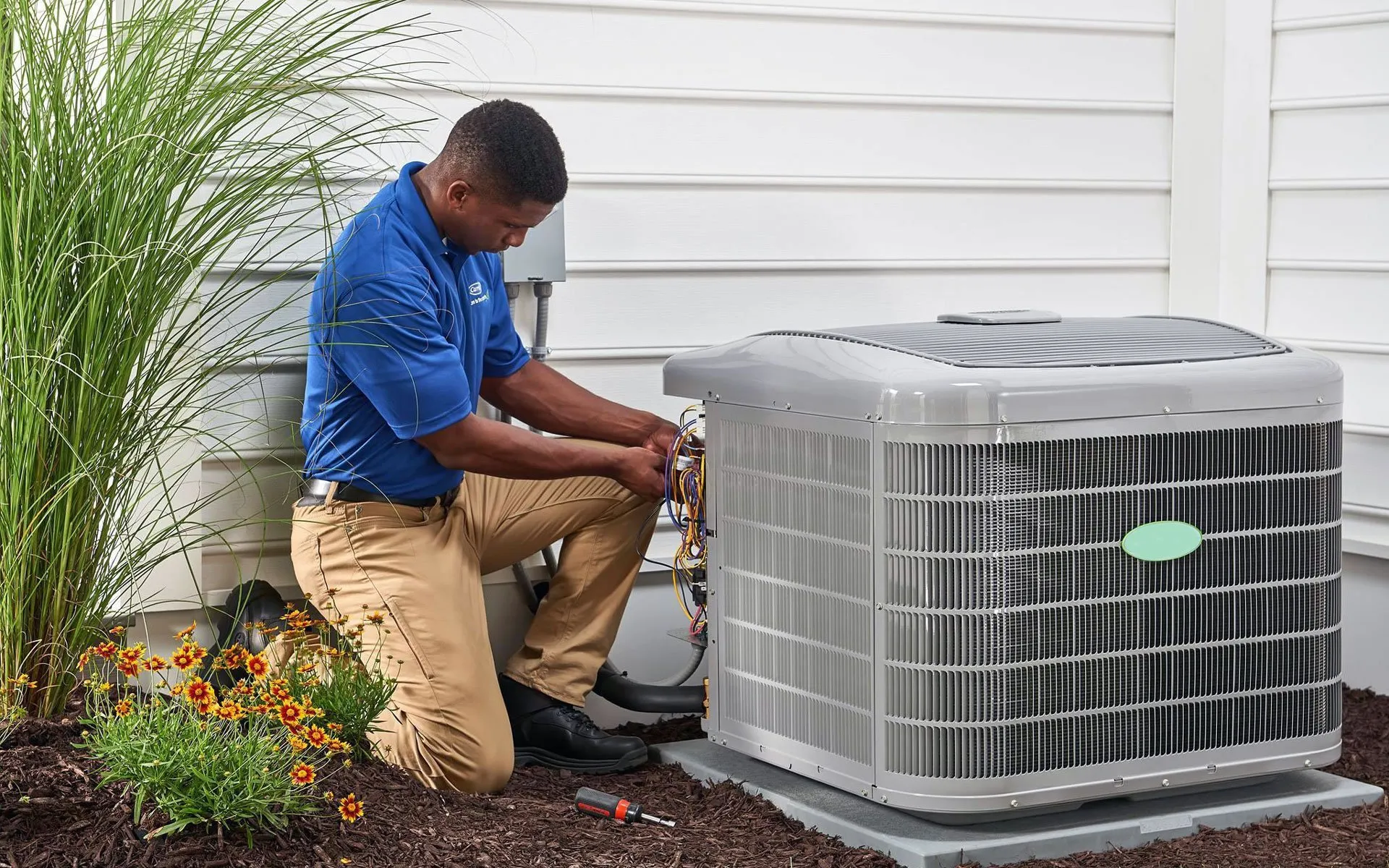Professional hvac company for quality service.
Professional hvac company for quality service.
Blog Article
Just How to Improve Energy Effectiveness With Your Cooling And Heating System and Furnace Upgrades
As energy costs proceed to climb, the value of improving energy performance via A/c system and heating system upgrades can not be overstated. Evaluating your existing system's efficiency and thinking about energy-efficient options are vital very first steps.
Examine Your Present System
Before starting any kind of upgrades, it is crucial to evaluate your existing heating and cooling system and heater to understand their efficiency and efficiency. This preliminary analysis provides a foundation for recognizing areas that call for enhancement and notifies choices about possible upgrades. Begin by taking a look at the age of your heating and cooling system, as obsolete models might do not have contemporary energy-saving attributes.

Energy usage records will additionally be important in determining your system's operational expenses. Consider carrying out a specialist energy audit to get a specialist assessment of your system's efficiency.
Upgrade to Energy-Efficient Models
Updating to energy-efficient versions is a critical action in enhancing the general efficiency of your heating and cooling system and heating system. These modern-day units are created to eat less energy while supplying optimum heating & cooling, leading to significant expense financial savings on energy costs and a reduced environmental footprint.
When thinking about an upgrade, try to find versions that have high Seasonal Power Performance Ratios (SEER) for air conditioning and Annual Fuel Usage Effectiveness (AFUE) scores for heating systems. These rankings show the performance of the devices, with greater numbers mirroring far better efficiency. Energy-efficient models typically integrate innovative modern technologies, such as variable-speed motors and smart thermostats, which even more enhance energy savings.
Additionally, lots of energy-efficient cooling and heating systems are outfitted with improved insulation and much better sealing, which reduce energy loss and improve indoor comfort. air conditioner repair. While the first financial investment might be greater, the long-lasting cost savings on energy costs and possible tax obligation rewards for utilizing energy-efficient appliances can offset this cost dramatically

Inevitably, updating to energy-efficient versions not only adds to an extra sustainable future yet also boosts the comfort and effectiveness of your home or organization.
Optimize System Setups
To make best use of the efficiency of your Cooling and heating system and heating system, it is crucial to maximize system setups customized to your certain requirements. Start by setting your thermostat to an energy-efficient temperature level.
Make use of programmable or clever thermostats that enable you to arrange temperature changes instantly. This guarantees your system operates only when essential, lowering power usage. Additionally, ensure that your system is established to run in the right mode-- home heating in winter months and air conditioning in summer-- while avoiding the continual fan option unless needed for air flow.
Take into consideration zoning systems that enable customized convenience in different areas of your home, additionally enhancing effectiveness. By fine-tuning these setups, you can achieve considerable power savings while preserving a comfy living atmosphere.
Improve Insulation and Sealing
A visit their website well-insulated home is vital to optimizing the efficiency of your a/c system and heater. Proper insulation decreases the work on these systems, therefore conserving energy and reducing energy costs. Begin by assessing your home's insulation in areas such as the attic, walls, and floors. Insulation materials like fiberglass, foam, and cellulose can substantially boost thermal resistance, aiding to keep conditioned air inside and my website exterior air out.
In addition to insulation, sealing gaps and cracks is essential. Pay special attention to windows, doors, and any kind of infiltrations in wall surfaces, such as electric outlets and pipes fixtures. Weatherstripping and caulking can efficiently seal these openings, preventing drafts that compromise your HVAC performance.
In addition, make certain that air ducts are appropriately protected and sealed. Leaky air ducts can bring about significant energy losses, reducing system efficiency. Making use of mastic sealant or metal tape to secure air duct joints can enhance airflow and efficiency.
Arrange Regular Upkeep
Regular maintenance of your Cooling and heating system and heater is crucial for making certain ideal performance and long life. Throughout maintenance, a qualified technician will certainly cleanse and change filters, check cooling agent levels, examine ductwork for leaks, and assess overall system operation.
It is recommended to set up upkeep at the very least two times a year-- when in the spring for the cooling system and once in the loss for the furnace. furnace repair. Routine maintenance aids keep constant indoor temperatures, ensuring comfort throughout the year. In addition, a properly maintained system runs more successfully, which can cause obvious reductions in power costs
Ignoring maintenance can result in decreased performance, boosted deterioration, and ultimately, system failing. By focusing on routine service, property owners can avoid unanticipated malfunctions and ensure their HVAC system and furnace run at peak performance. Purchasing upkeep is a vital step in boosting power effectiveness and producing a much more sustainable home setting.
Final Thought
To conclude, enhancing energy performance within HVAC systems and heating system resource upgrades is vital for decreasing power usage and boosting general comfort. A systematic strategy that includes assessing the present system, investing in energy-efficient versions, maximizing setups, improving insulation, and organizing routine upkeep can result in substantial benefits. Applying these methods not only lowers energy expenses but additionally contributes to a more sustainable setting, making it necessary for property owners to focus on these upgrades.
Report this page